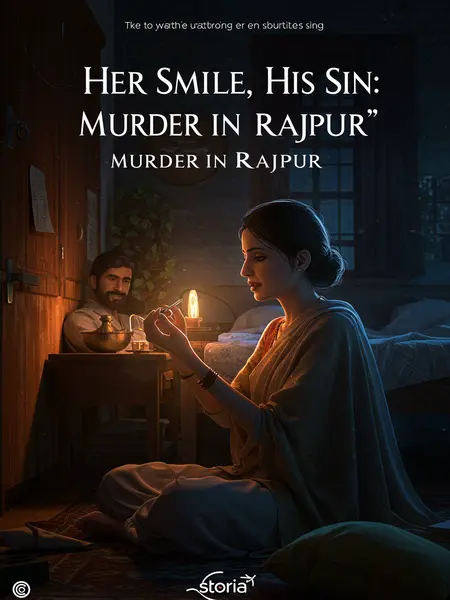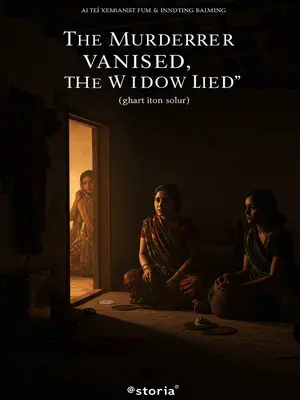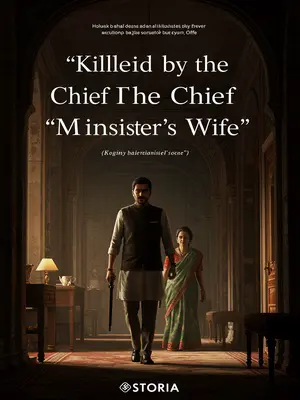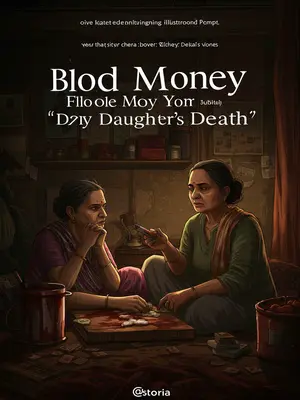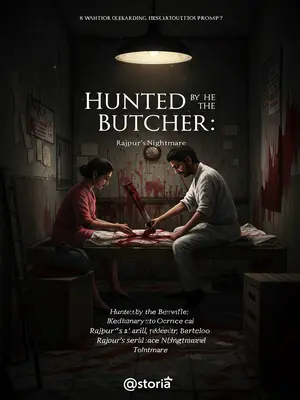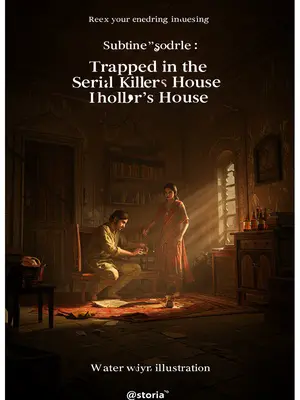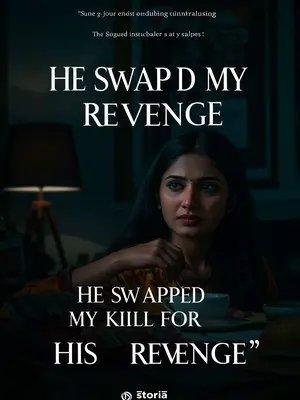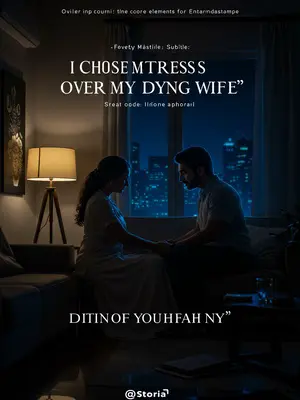Chapter 2: Motives and Mysteries
The forensic doctor arrived, his sleeves rolled and notepad in hand. "Sir, raat ke bara baje ki maut lagti hai. Pehle sir pe chot, phir galay pe nishan. Sab kuch likh diya hai, aap dekh lijiye."
Amit jotted details in his own battered red notebook, a habit borrowed from old Bollywood police dramas. Details always mattered.
The cause of death: strangulation, preceded by blunt force trauma to the occiput. A swelling at the back of her head was visible through her hair. "Kuch toh gadbad hai, sir," the doctor said, shaking his head.
Her nightgown was torn, raising the possibility of sexual assault, but the doctor clarified, "Sir, koi bhi chhed-chhad nahi hui." Amit felt a wave of relief, but confusion too. "Toh phir, yeh sab drama kis liye?"
Valuables like her gold earrings, ring, necklace, and mangalsutra were untouched. Even the youngest constable shook his head—"Yeh toh chori ka mamla nahi ho sakta, sir."
If the motive was money, why leave behind gold? In Indian homes, even the smallest thief knows the value of gold.
No forced entry was found. Window latches were dusty, balcony grill untouched, the main door bearing only its usual scratches—no sign of a break-in.
In Ananya’s bedroom, the TV was paused mid-episode on 'Kyunki Saas Bhi Kabhi Bahu Thi.' Tulsi’s face was frozen mid-tears on the screen, the remote fallen just out of reach. "Saala, this serial even witnesses murders," a young constable tried to joke, but no one laughed.
Inspector Amit reconstructed the crime in his mind, his thoughts ticking like an old HMT watch. Ananya, remote in hand, feet curled up—someone knocks at midnight. Would she really open the door at this hour? Not unless she knew the knock.
She must have paused her show, perhaps peered through the peephole, then, trusting the visitor, opened the door. She turned—was struck from behind, knocked unconscious, and then strangled as she tried to fight back. The killer panicked, shoved her body into the wardrobe, then wiped the floor to remove traces before slipping out.
Yet, why would a thief kill first, then search for valuables, and finally clean up? "Yeh paisa ka maamla toh bilkul nahi lagta," Amit murmured.
He sipped the tea brought by a constable, its taste bitter. In India, most crimes are driven by emotion, not logic. The facts didn’t fit—a deeper motive was hiding.
No Indian woman opens the door at midnight for a stranger, especially in a secure colony. She must have trusted the visitor—family or friend. Only someone close would risk coming at night.
Even a rookie criminal knows better than to linger after a crime. All these inconsistencies pointed away from a simple burglary.
Amit tapped his pen impatiently. In cases where a wife is murdered, suspicion always falls first on the husband—over 50% of the time, Indian crime statistics say. Amit knew this pattern too well from years of seeing families torn apart by secrets and rage.
So, Rohan Tiwari became the first suspect. Even if it felt uncomfortable, Amit knew he had to look Rohan in the eye and ask the hard questions. Rohan, feet bare and palms pressed in a nervous namaste, answered quietly, his voice cracking as he looked at the floor. Sweat rolled down his temple, his fingers twisting his ring.
"Main apni chaabi hamesha apne paas rakhta hoon, sir. Dusri chaabi Ananya ke paas hi thi." He showed his medical receipts, a doctor’s visiting card, and an auto ticket from Pune station. His story was consistent, and the hospital confirmed it.
He admitted, "Kabhi kabhi Ananya chaabi main gate ke flowerpot mein chhupa deti thi, but she never gave it to anyone." He wiped his eyes, pleading, "Sir, woh bahut samajhdar thi. Kisi ajnabi ke liye kabhi nahi kholti. Shayad kisi apne ke liye khola ho."
"How was your relationship with Ananya?" Amit asked. The question hung in the air. Rohan’s voice grew stronger, defensive: "Dono hamare doosre shaadi hai, par hum bahut khush the. Ananya kabhi bewafai nahi karti. Main guarantee deta hoon, sir. Uspar shak mat kariye."
If not a lover, then who? Amit scribbled a note, the circle of suspects shrinking but not vanishing. He kept his doubts alive, refusing to settle for easy answers.
